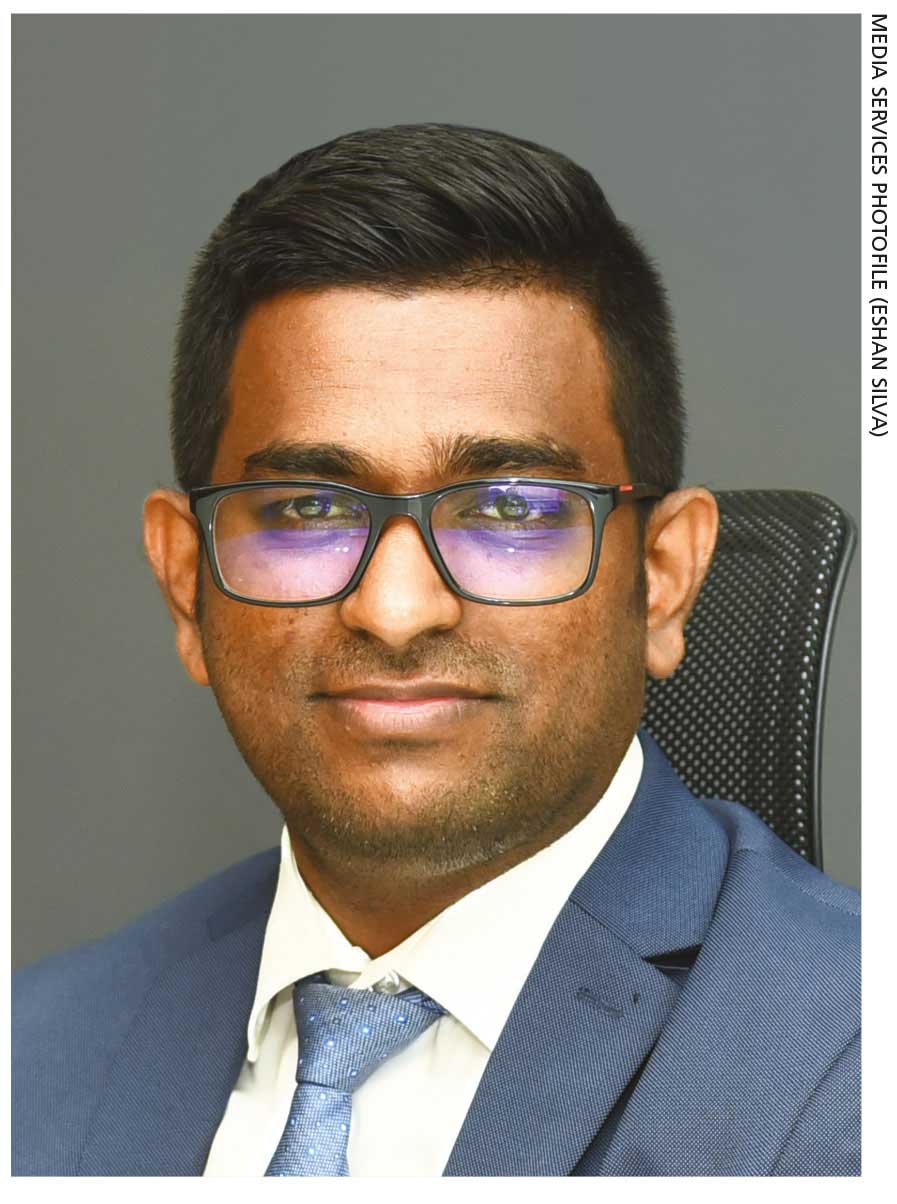FINANCIAL SERVICES

THE TECH TRANSFORMATION
Raditha Alahakoon explains how tech is transforming professional services
Compiled by Ruwandi Perera
 Q: What are the trends in the financial services profession?
Q: What are the trends in the financial services profession?
A: The chief trend is a shift to remote working and virtual offices. Professional business services have always focussed on relationships and enterprises, and often engage in face-to-face meetings. Remote interaction with clients has been a major shift in this sphere.
Current market conditions have not impacted professional business services uniformly. The entities that provide ongoing core services such as auditing may find their engagements continue albeit in a virtual format. On the other hand, custom project work is more susceptible to deferrals when clients take a hard look at budgets.
Professional services such as auditing, accounting and tax consultancies charge clients on an hourly basis. This billing model doesn’t consider the value generated from each task and clients fail to see the benefits of the overall project.
To address this, entities around the world have begun opting for a value driven revenue model that bills clients based on the benefits they derive during the course of a project.
Digital transformation isn’t new to professional business services due to the rapid automation that we saw in the last decade or so. Due to the pandemic however, the rate at which businesses have adopted technology and embraced automation has increased.
Q: Could you outline the most pressing challenges that the profession is facing today?
A: The new ‘skill economy’ is placing a greater emphasis on workers having more granular credentials that will need regular updating and replacing. Upskilling technical skills to match future challenges and reskilling on an ongoing basis has become mandatory for professionals.
For example, a range of employees from outside the accountancy profession have begun undertaking some aspects of the accounting function such as business intelligence.
In terms of institutions, hiring qualified candidates – and retaining confident, reliable and talented employees – has become a challenge due to prevailing economic conditions. Skill migration is at a peak and this situation may exacerbate due to economic uncertainty.
Remote and hybrid team management are among the critical challenges that the financial services profession has faced over the past two years or so due to COVID-19. Maintaining employee efficiency, productivity and collaboration at the same level could be difficult, without sufficient resources as well as training.
Q: How are current global events shaping the local landscape regarding financial services?
A: I don’t think that prevailing global events will directly impact the local financial services profession. If ongoing global conflicts affect a business’ clients significantly, they’re likely to tighten their belts on spending.
When developing a growth strategy or even simply one for stabilisation purposes, businesses need to understand the demand outlook of such clients.
Q: In your opinion, what aspects should Sri Lanka prioritise to stabilise the economy in this phase of economic uncertainty?
A: Firstly, we have to restructure Sri Lanka’s foreign debt. The government should then move to fiscal consolidation and develop a credible recovery plan ranging from the short and medium to long terms.
Long-term planning should focus on resolving structural issues that the economy is facing today. In terms of the necessary policy reforms, I don’t think we have many alternatives. Proper implementation of policy initiatives is critical as the ‘too little, too late’ approach will further compromise our chances.
Q: How should organisations leverage digital technology in your profession?
A: Technology is fundamentally transforming how we live and work; and the change of pace is continuously accelerating in response to the pandemic. This is the case for our clients’ businesses as well as ours, across audit, tax, legal and advisory services.
Trends in digital transformation affect how businesses deliver professional services; but beyond that, these shifts can also challenge the notion of ‘expert practitioners.’
Professional services exist because they have built businesses that deploy individuals with specialised skills, expertise and knowledge.
However, technological innovation is changing the need for such individualised specialisation.
Most enterprises have integrated new technologies such as robotic process automation, AI and data analytics into their delivery methodologies. These may even replace various activities currently performed by expert practitioners as such technologies are more efficient in functions such as fraud detection, onboarding, contract and compliance review, and auditing.
Such new technologies reduce costs and enable professionals to spend more time assisting clients with higher margin activities.
Further, as businesses are becoming more automated and fast implementing remote work strategies, there is an increased risk to network and cloud solutions.
Therefore, all our priorities are underpinned by the relentless effort to keep the technology landscape secure along with our own data and that which has been entrusted to us by our clients.





Leave a comment